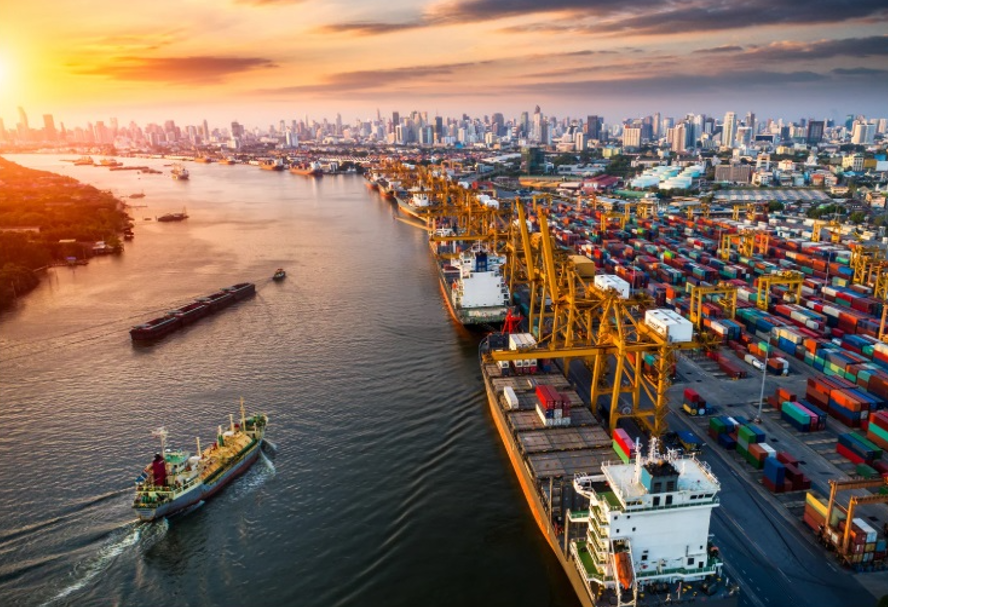The Legal Landscape of E-commerce Logistics in Japan: Compliance, Risks, and Mitigation Strategies

March 26, 2025
Key Words: E-commerce Logistics, Japan’s Transportation Law, Motor Truck Transportation Business Act, Consigned Freight Forwarding Business Act, Regulatory Compliance, Japan Fair Trade Commission (JFTC), Special Designation for Logistics, Employer’s Liability, Contractual Liability, Freight Forwarding Licensing, Recent Legal Reforms, 2024 Logistics Crisis, Delivery Incident Liability, Last-Mile Logistics, Compliance Strategies for E-commerce, Fair Trade Practices in Logistics.
目次
I. Introduction[1]
In recent years, Japan’s e-commerce market has experienced significant growth, reflecting a global trend toward digitalization in consumer behavior. According to the Ministry of Economy, Trade and Industry (METI), the domestic Business-to-Consumer e-commerce (BtoC-EC) market expanded to JPY 24.8 trillion in 2023, marking a 9.23% increase from the previous year.[2] This rapid expansion has underscored the critical role of logistics in ensuring timely and efficient delivery of products to consumers. As e-commerce platforms strive to meet escalating consumer expectations for swift and reliable delivery, understanding and navigating Japan’s regulatory landscape governing transportation and logistics has become increasingly vital. This article explores the regulatory framework for transportation businesses in Japan, identifies key legal obligations and potential risks for e-commerce operators, and discusses recent regulatory trends and potential legal reforms affecting the e-commerce logistics sector.
II. Regulatory Framework for Transportation Business Providers
Japan’s regulatory framework governing logistics operations is comprehensive, with clearly defined roles and responsibilities for the parties involved. At its core, the Motor Truck Transportation Business Act stipulates licensing requirements and compliance obligations for companies transporting goods by road. Additionally, the Consigned Freight Forwarding Business Act provides regulations specifically for intermediaries involved in arranging cargo transport. The details of each law, along with an overview of transportation-related licenses derived under these laws, are as follows:
1 Motor Truck Transportation Business Act
The Motor Truck Transportation Business Act regulates the licensing, operational standards, and ongoing compliance obligations for companies that transport goods via road vehicles in Japan. This law mandates companies to meet stringent requirements, including vehicle standards, driver management, and safety protocols. Furthermore, carriers must undergo frequent regulatory audits and inspections to ensure compliance. Non-compliance may result in severe penalties, including fines, suspension of business operations, or revocation of licenses, significantly impacting business continuity and reputation.
The transportation-related licenses under this Act include:
- General Motor Truck Transportation Business
This refers to transportation services provided for multiple, unspecified customers for compensation, using motor vehicles (excluding two-wheeled vehicles and three-wheeled or larger “kei” vehicles). A typical example is parcel delivery services offered to general customers by truck.
- Specified Motor Truck Transportation Business
This category involves transportation services provided exclusively for a specific consignor for compensation, using motor vehicles (excluding two-wheeled vehicles and three-wheeled or larger “kei” vehicles). An example would be dedicated logistics services provided exclusively to a single client or company.
- Light Motor Truck Transportation Business
This category covers transportation services provided to others for compensation, specifically using motor vehicles classified as “kei” (軽) vehicles with three or more wheels, or two-wheeled vehicles. Examples include small-scale deliveries by kei trucks or motorcycle courier services.
2 Consigned Freight Forwarding Business Act
The Consigned Freight Forwarding Business refers to businesses that, in response to the needs of consignors (荷主), assume transportation responsibility and arrange the transportation of cargo for compensation using actual transportation providers. Therefore, activities such as hiring transportation providers solely for a company’s own cargo needs or engaging in freight forwarding without compensation do not constitute a consigned freight forwarding business.[3] Entities engaged in consigned freight forwarding are required to be registered with authorities (in the case of First-Class below) or to obtain approval (in the case of Second-Class below), and must comply with specific legal obligations, such as submitting transportation terms and conditions.
Failure to adhere to these regulatory obligations can lead to serious administrative penalties, including improvement orders, suspension of business operations, cancellation of registration, and potential financial penalties. Such regulatory actions not only disrupt business operations but can also have lasting negative impacts on the company’s reputation.
Under this law, freight forwarding businesses are classified into the following two categories:
- First-Class Consigned Freight Forwarding Business
A First-Class Consigned Freight Forwarding Business refers to a business that engages in consigned freight forwarding for compensation, excluding businesses that fall under the category of Second-Class Consigned Freight Forwarding Business. A typical example is a business that arranges transportation using other carriers, relying exclusively on trucks for delivery.
- Second-Class Consigned Freight Forwarding Business
A Second-Class Consigned Freight Forwarding Business refers to a business that, in response to customer demand, arranges an integrated transportation service from the shipment point to the delivery destination using multiple transportation modes. This category requires the use of at least two different transportation methods, such as general motor truck transportation, shipping, air transport, or railway transportation, providing a seamless door-to-door freight forwarding service. For example, a Second-Class Consigned Freight Forwarding Business might collect cargo via truck, transport it to a port, and then ship it via vessel to its final destination.
III. Legal Obligations and Risks for E-commerce Operators in Logistics and Mitigation Measures
While the preceding section outlines the regulatory framework applicable to logistics service providers, e-commerce operators that do not directly provide logistics services are generally not subject to the regulations described in Section II. However, even in such cases, e-commerce operators, in their capacity as consignors, may still be subject to various legal obligations and risks. The key obligations, potential liabilities, and corresponding mitigation strategies are discussed below.[4]
1 Correction Instruction by the Minister of Land, Infrastructure, Transport, and Tourism
Under the Motor Truck Transportation Business Act, if a motor truck transportation operator commits a regulatory violation due to factors attributable to the consignor, the Minister of Land, Infrastructure, Transport, and Tourism (MLIT) may issue a correction instruction to the consignor.[5] In cases where such instruction is issued, the name of the consignor may be publicly disclosed, leading to reputational risks. Examples of problematic conduct by consignors include (1) penalties imposed on carriers for unavoidable delays, (2) unreasonable delivery time requirements and (3) sudden, excessive increases in shipment volume.
E-commerce operators often prioritize customer experience, which can result in the implementation of excessively strict delivery deadlines or penalty clauses for delays for the carriers. However, such practices should be avoided as they can create compliance risks and potential disputes with carriers. If an operator still finds it necessary to establish strict delivery requirements or penalties, it is essential to ensure that these conditions are not imposed unilaterally. Instead, they should be developed through mutual discussions with carriers, leading to a consensus on reasonable numerical targets. Furthermore, it is crucial to document the entire negotiation process and agreement details, demonstrating that delivery conditions were established collaboratively rather than dictated solely by the e-commerce operator.
2 Prohibited Practices Under the Special Designation for Logistics
The Special Designation for Logistics is a regulatory designation established by the Japan Fair Trade Commission (JFTC) under the Antimonopoly Act to prevent the abuse of superior bargaining power in transactions between consignors and logistics service providers.
A specific consignor (i.e., a consignor with a superior bargaining position in business transactions) is prohibited from engaging in unfair practices including:
- Delays in payment
- Unilateral reductions in fees
- Forcing logistics service providers to purchase goods or use specific services
- Demanding unjust economic benefits
- Unfairly altering contract terms or demanding rework without justification
- Retaliatory measures against suppliers who refuse unjust demands
If a violation occurs, the JFTC will conduct an investigation, and if the violation is confirmed, a cease-and-desist order will be issued. Such violations pose significant legal and reputational risks. This risk is particularly critical for large e-commerce operators expanding into Japan from overseas.
To mitigate this risk, it is crucial to recognize that most violations occur at the operational level, often through informal verbal exchanges between company representatives and logistics providers on-site, beyond the direct oversight of corporate headquarters. Addressing this issue requires a comprehensive approach to employee education and awareness. Employees must be thoroughly trained to understand which practices are prohibited and the reasons behind their illegality.
A well-structured training program should be implemented, starting with a dedicated training deck provided during employee onboarding. This initial education should be reinforced through periodic refresher training sessions at regular intervals to ensure continued compliance awareness. By maintaining a consistent focus on education and awareness-building, companies can foster a culture of compliance and reduce the risk of regulatory violations.
3 Consignor’s Liability for Delivery Incidents
If a delivery driver causes an incident during delivery—such as a traffic accident during transportation, theft, or assault during delivery—the consignor may be held legally liable under the following principles:
- Employer’s liability : Liability arising when an operator exerts substantial control over drivers.
- Automobile Operation Liability : Liability for damages caused by vehicle operation incidents.
- Contractual Liability: Liability due to failure to fulfill contractual obligations through third parties such as carriers.
As e-commerce businesses expand, delivery-related incidents are expected to occur and increase inevitably. To mitigate these risks, it is essential to enhance safety education for drivers by distributing accident-prevention equipment, promoting safe driving awareness, and providing regular safety training reminders. Reducing the likelihood of accidents through proactive safety measures should be a priority.
When accidents do occur, the primary liability typically rests with the carriers. Therefore, it is crucial to explicitly stipulate in delivery contracts that carriers must respond to incidents promptly and appropriately. Additionally, regular monitoring by the E-commerce operators should be conducted to ensure that carriers are fulfilling their incident response obligations effectively.
Moreover, ensuring that the company has comprehensive insurance coverage is of utmost importance. Beyond securing its own insurance policies, an e-commerce operator should also require its contracted carriers to maintain adequate insurance coverage, explicitly stipulating this obligation in contractual agreements.[6]
IV. Recent Regulatory Trends and Legal Reform
Recent legislative reforms in Japan have responded to rising concerns about logistics disruptions due to tighter regulations on drivers’ working hours (known as the “2024 logistics crisis”) and the increasing number of serious accidents involving light trucks. The amendment to the Act on Comprehensive Efficiency in Distribution Operations and the Motor Truck Transportation Business Act, enacted in April 2024 and effective from April 2025, introduces several important changes such as (1) enhanced obligations for logistics business and consignors, (2) enhanced safety regulations for small truck operators, (3) measures to ensure fairness in transactions among truck operators.[7] E-commerce operators must stay informed about these potential changes, as adjustments in regulations could significantly impact delivery practices, compliance strategies, operational costs, and overall business models.
V. Conclusion
The landscape of e-commerce logistics in Japan is governed by a complex and evolving regulatory framework that imposes compliance obligations on e-commerce operators, consignors, and logistics service providers. To ensure compliance and mitigate potential risks, e-commerce operators must adopt proactive measures such as implementing robust compliance and training programs, strengthening contractual agreements with carriers, and maintaining adequate insurance coverage. Moreover, given the heightened scrutiny on unfair trade practices, operators should carefully manage their relationships with logistics providers to minimize exposure to legal liability. As regulatory reforms continue to reshape the logistics sector, it is crucial for e-commerce operators to stay informed about legal developments and adjust their operational and compliance strategies accordingly.
Further contact:

| Shinichiro (“Shin”) Mori MANAGING PARTNER |
T: +813-6831-9281
E: shinichiro.mori@mps-legal.com

| Shunya Suzuki SENIOR ASSOCIATE |
T: +813-6831-9284
E: shunya.suzuki@mps-legal.com
[1] This communication is provided as a service to our clients and friends and is for informational purposes only. It is not intended to create an attorney-client relationship or constitute an advertisement, a solicitation, or professional advice as to any particular situation.
[2] “FY 2023 Digital Transaction Environment Development Project (Market Survey on Electronic Commerce)” by the Ministry of Economy, Trade and Industry (METI), available at https://www.meti.go.jp/press/2024/09/20240925001/20240925001.html
[3] “Q&A on Consigned Freight Forwarding Business”, by the Ministry of Land, Infrastructure, Transport and Tourism.
[4] In addition to the issues discussed in this article, various other legal concerns exist, including those related to the Subcontracting Act, employment and misclassification issues, and the formation of labor unions. These topics will be addressed in a separate article.
[5] Article 64, The Motor Truck Transportation Business Act
[6] An alternative approach is to limit the degree of direct supervision exercised by the e-commerce operator over drivers, thereby reducing the likelihood of being classified as an employer or an automobile operator under the relevant legal principles. However, adopting this strategy requires careful consideration, as it may lead to a decrease in safety standards or a reduction in delivery efficiency.
[7] We will discuss the recent amendment to the Act on Comprehensive Efficiency in Distribution Operations and the Motor Truck Transportation Business Act in a separate article.